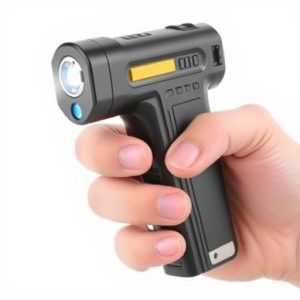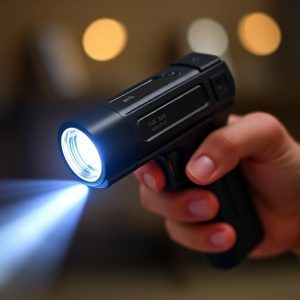Smart Phone Stun Guns: State Restrictions & Legal Rights Explained
Understanding the legal status of smart phone stun guns is crucial for personal protection enthusias…….
Understanding the legal status of smart phone stun guns is crucial for personal protection enthusiasts in the U.S., where regulations vary greatly by state, from strict prohibitions to lenient laws allowing open or hidden possession. Staying informed about local legislation is essential to avoid legal consequences, as possession in a restricted area can lead to serious issues. Before purchasing, thoroughly research state-specific laws regarding smart phone stun guns, considering factors like carry restrictions, licensing requirements, voltage limits, and permissible use.
“Unraveling the complex web of regulations surrounding smart phone stun guns is essential for anyone considering self-defense options. This comprehensive guide offers a state-by-state analysis of restrictions, providing clarity on where and how these devices are legal. From understanding the law to navigating gray areas, we debunk common misconceptions. Whether you’re an advocate or a concerned citizen, this detailed overview ensures you’re informed about your rights and the legal considerations when carrying a smart phone stun gun.”
- Understanding Stun Gun Laws: A Comprehensive Overview
- State-by-State Analysis of Smart Phone Stun Gun Restrictions
- Legal Considerations and Rights When Carrying a Stun Gun
- Navigating the Gray Areas: Common Misconceptions Debunked
Understanding Stun Gun Laws: A Comprehensive Overview
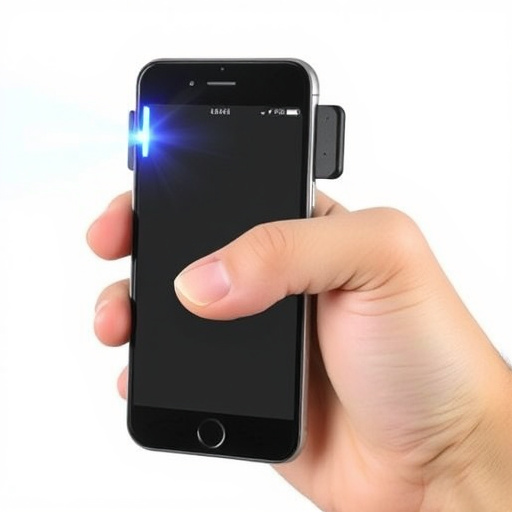
Stun guns, also known as electronic control devices (ECDs), are powerful tools designed for personal protection. Understanding their legal status across different states is crucial for anyone considering owning one. Each state in the US has its own set of regulations surrounding stun guns, varying from strict prohibitions to lenient laws that allow open carry or hidden possession. These laws can be complex and often differ significantly between neighboring states, making it challenging for individuals to navigate.
When it comes to smart phone stun guns, an innovative modern option, users must be particularly vigilant. Some states categorize these compact devices as weapons, subject to the same restrictions as traditional firearms. Others might classify them as non-lethal self-defense tools, allowing for easier possession and use. Staying informed about local legislation is essential; possessing a smart phone stun gun in a jurisdiction that prohibits it can lead to legal consequences.
State-by-State Analysis of Smart Phone Stun Gun Restrictions
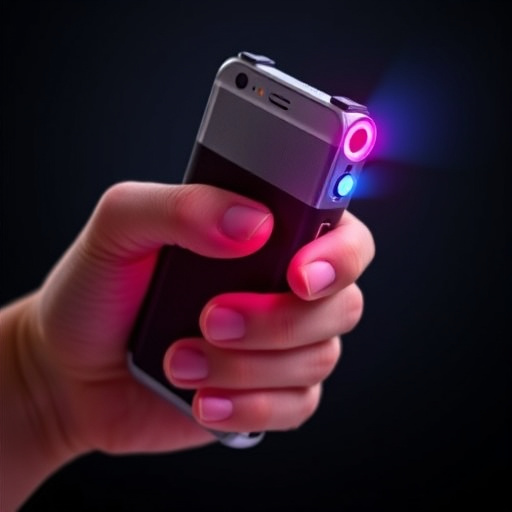
In the United States, regulations surrounding smart phone stun guns vary significantly from state to state, creating a patchwork of laws that can leave individuals and law enforcement uncertain about their legality and use. While some states have embraced the concept, allowing open carry or concealed possession with minimal restrictions, others have implemented stringent measures, classifying them as illegal or requiring specific licenses. This diverse landscape demands a nuanced understanding for anyone considering purchasing or carrying a smart phone stun gun.
A state-by-state analysis reveals a range of regulations, often influenced by local perceptions of public safety and crime rates. Some states, like Texas and Florida, have relatively relaxed rules, enabling open carry without permits. In contrast, California, New York, and Illinois have stricter policies, treating stun guns as controlled substances with stringent licensing requirements. This variation underscores the need for individuals to research their state’s specific laws before acquiring a smart phone stun gun to ensure compliance and avoid potential legal repercussions.
Legal Considerations and Rights When Carrying a Stun Gun
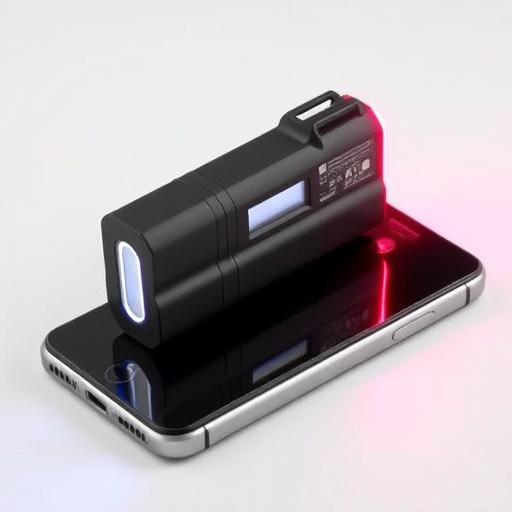
When considering carrying a stun gun for self-defense, understanding the legal landscape is paramount. Each state in the U.S. has its own set of regulations and restrictions regarding the ownership and use of stun devices, including smart phone stun guns. These laws vary widely, affecting where and how you can legally carry your stun gun, as well as under what circumstances it can be used.
Knowing your rights is crucial; some states allow concealed carrying of stun guns without a permit, while others require permits or specific licenses. Additionally, restrictions on the voltage and power output of stun devices vary by state. It’s essential to research and comply with local laws to avoid legal repercussions. Carrying a smart phone stun gun responsibly means staying informed about these regulations, ensuring you’re aware of your rights and responsibilities.
Navigating the Gray Areas: Common Misconceptions Debunked
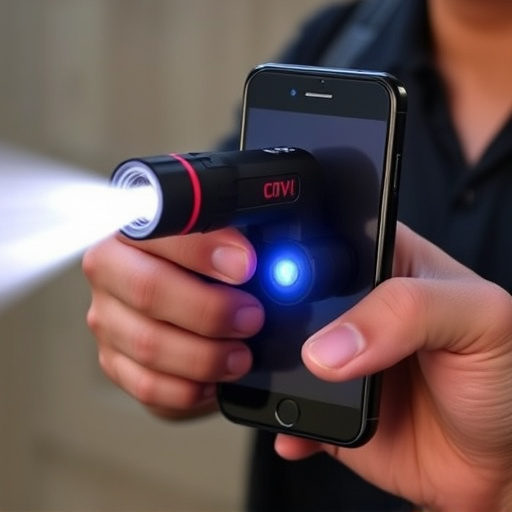
Many individuals carry a smart phone for emergency situations, but did you know that laws surrounding stun guns vary greatly from state to state? A common misconception is that if it fits in your pocket, it’s legal – this isn’t always true. Stun guns, or electronic control devices (ECDs), fall into a gray area of legislation, with some states allowing them without a permit and others restricting their use.
Another debunked myth is that stun guns are only for self-defense against animals. In reality, many people carry them for personal safety during travel or in areas where they feel vulnerable. Understanding these misconceptions is crucial when navigating the legal restrictions surrounding Smart Phone Stun Guns. Always check your state’s specific laws before considering carrying an ECD to ensure compliance and peace of mind.
Understanding the legal landscape surrounding stun guns, particularly smart phone stun guns, is crucial for anyone considering carrying one. This comprehensive guide has analyzed state-by-state restrictions, debunked common misconceptions, and outlined legal considerations to empower individuals with knowledge. Remember that laws vary widely, so always check your local regulations before acquiring or using a stun gun. By staying informed, you can ensure compliance and protect your rights as a responsible citizen.

